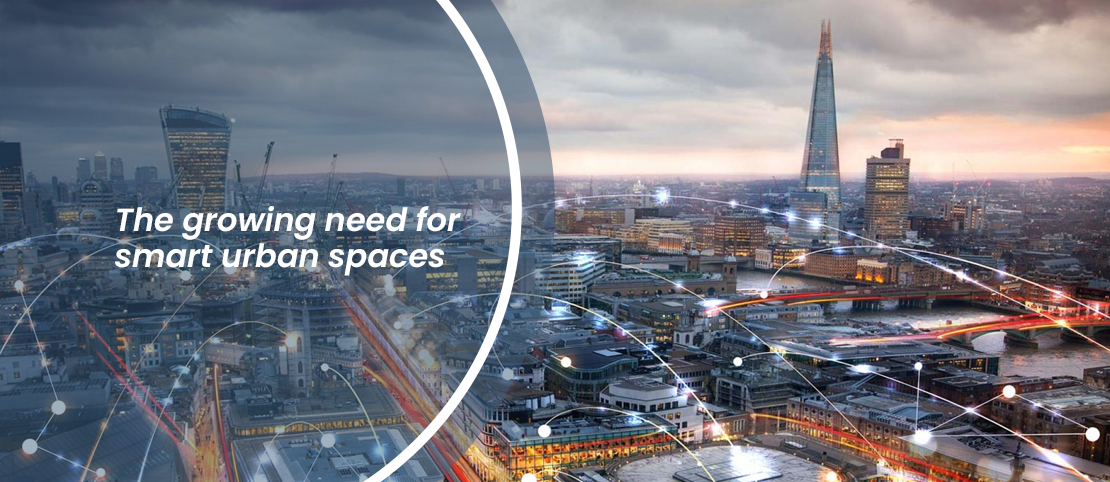The Growing Need for Smart Urban Spaces: The Role of Building Technology
Urbanization is on the rise, and with it comes a growing need for sustainable, intelligent cities. Smart urban spaces are defined by their ability to use technology and data to improve the quality of life for residents. Building technology plays a key role in this, as it helps to improve efficiency, safety, and sustainability. Smart urban spaces, characterized by intelligent, interconnected buildings, offer a promising solution to many of the current urban issues.
Current Urban Space Issues
One of the key issues facing urban spaces today is congestion. As populations grow, there is an increasing demand for space, and cities are struggling to keep up. Smart building technology can help to alleviate congestion by optimizing the use of space. For example, intelligent parking systems can help to reduce traffic by guiding drivers to open spots, and smart building materials can help to make structures more compact and efficient. Another issue is energy consumption. Smart building technology can help to reduce energy use by optimizing heating, cooling, and lighting systems. It can also help to monitor and control water usage, helping to conserve a precious resource.
The Need for a New Approach to Building Design and Construction
There is a growing need for a new approach to building design and construction that can address the challenges of a changing climate, rising urbanization, and the need for more efficient and sustainable buildings. Traditional construction methods are no longer sufficient to meet these challenges, and there is a need for a more holistic and integrated approach. This new approach should consider the entire lifecycle of a building, from design and construction to operation and maintenance. It should also incorporate the use of smart materials and technologies to create buildings that are more efficient, resilient, and sustainable.
Innovations in Building Technology
Recent advancements in building technology are reshaping the construction landscape. From innovative materials and construction techniques to energy-efficient systems, these developments are enabling the creation of smarter and more sustainable urban spaces. Some notable innovations include:
Advanced Materials: High-performance materials that are lighter, stronger, and more durable are being utilized in construction. These materials improve the efficiency of buildings, reduce energy consumption, and contribute to overall sustainability.
Prefabrication and Modular Construction: Prefabricated components and modular construction techniques streamline the building process, reducing construction time and waste. This approach also allows for greater flexibility and adaptability in design.
Renewable Energy Integration: Smart buildings are incorporating renewable energy sources such as solar panels and wind turbines to generate clean energy and reduce reliance on traditional power grids.
Energy-Efficient Systems: Smart HVAC (heating, ventilation, and air conditioning) systems, automated lighting, and intelligent energy management systems optimize energy usage within buildings.
Digital Twin Technology: Digital twins, virtual replicas of physical buildings, enable real-time monitoring, analysis, and optimization of building performance, leading to more informed decision-making.
The Role of Smart Building Systems
At the heart of the smart urban space concept are smart building systems. These systems leverage technology and data to create intelligent, interconnected structures that can respond to changing environmental conditions, occupancy patterns, and user preferences. Smart building systems encompass various aspects:
IOT Integration: The Internet of Things (IOT) enables devices and sensors to communicate and share data, allowing buildings to autonomously adjust lighting, heating, and cooling based on occupancy and environmental factors.
Data Analytics: Advanced data analytics help identify trends and patterns in building performance, allowing for predictive maintenance, energy optimization, and improved user experiences.
Building Automation: Automation of routine tasks and processes enhances efficiency, reduces operational costs, and improves overall building management.
User-Centric Design: Smart buildings prioritize user comfort and well-being by customizing environments to individual preferences, thereby creating more pleasant and productive spaces.
Case Studies of Successful Projects
Several cities around the world have embraced the concept of smart urban spaces and have implemented innovative building technologies to address urban challenges:
Masdar City, UAE: This carbon-neutral city features cutting-edge sustainable technologies, including solar power generation, efficient waste management, and advanced water recycling.
The Edge, Amsterdam: Regarded as one of the smartest buildings globally, The Edge utilizes IOT sensors to optimize energy usage, lighting, and workspace allocation based on real-time data.
Songdo International Business District, South Korea: Designed as a smart city from the ground up, Songdo incorporates smart infrastructure, waste management systems, and smart building technologies.
The growing need for smart urban spaces underscores the urgency to adopt innovative building technologies that can transform cities into sustainable, efficient, and livable environments. By integrating advanced materials, energy-efficient systems, and smart building technologies, urban spaces can evolve to meet the demands of the 21st century.
Related Posts
By accepting you will be accessing a service provided by a third-party external to https://www.mbt-techserv.com/




